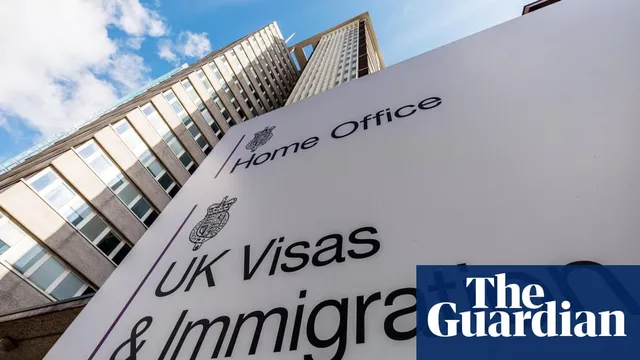
Home Office urged to end costly, discriminatory visa route for migrants
2024-09-19 00:00- The 10-year immigration route in the UK is primarily used by people of colour, particularly from Nigeria, Pakistan, India, Ghana, and Bangladesh.
- Applicants must renew their leave to remain every 30 months at a cost of £3,850 per renewal, often leading to debt and financial hardship.
- Advocates are calling for the government to reduce the settlement wait time from 10 years to 5 years to alleviate the burdens faced by immigrants.
Express your sentiment!
Insights
A recent analysis has revealed that the 10-year immigration route in the UK disproportionately affects people of colour, particularly those from Nigeria, Pakistan, India, Ghana, and Bangladesh. This route requires applicants to renew their leave to remain every 30 months, incurring a fee of £3,850 for each renewal. Many individuals resort to borrowing money to cover these costs, leading to significant debt and financial strain. Affected individuals often work in low-paid jobs, such as cleaning and care work, making it difficult to manage these expenses. One case highlighted is that of a Ghanaian woman who, after being granted leave in 2018, became an overstayer due to a late renewal application. She expressed feelings of entrapment and frustration, as her immigration status prevents her from pursuing her goal of becoming a nurse. This sentiment is echoed by advocates who argue that the lengthy wait for settlement is inhumane and should be reduced to five years. Critics of the 10-year route, including representatives from organizations like Ramfel, describe it as a remnant of the UK's hostile immigration environment, suggesting that it is designed to discriminate against African and South Asian nationals. They call for a reevaluation of the immigration policies that place individuals on this challenging path. The Home Office maintains that decisions regarding the immigration route are not influenced by race or nationality, stating that the 10-year route is applied in cases where families do not qualify for a five-year route but where refusal would violate human rights obligations.
Contexts
The Home Office is facing pressure to end a costly and discriminatory visa route for migrants, highlighted by the case of Dana Abu Qamar, a Palestinian law student whose visa was revoked after she spoke at a protest regarding Gaza. This decision, made by former immigration minister Robert Jenrick, has raised concerns about the implications for freedom of speech and human rights, with Abu Qamar challenging the revocation through an appeal set for review in September 2024. In 2023, the UK has seen a significant increase in migrant crossings, with over 21,000 individuals arriving via the English Channel. The government has responded to this surge by enhancing border security and targeting smuggling operations, as the average daily crossings have risen to 131 since Sir Keir Starmer took office. The situation is further complicated by a record number of migrants being granted asylum, with more than 25,300 arriving by small boat. This has led to concerns about the safety and capacity of these vessels, as the average number of people per boat has increased to over 50. Additionally, there is a growing backlog of asylum seekers awaiting decisions from the Home Office, contributing to the chaos in the immigration system. Labour representatives have expressed concern over the handling of these claims, while the government maintains its stance on managing the asylum process.